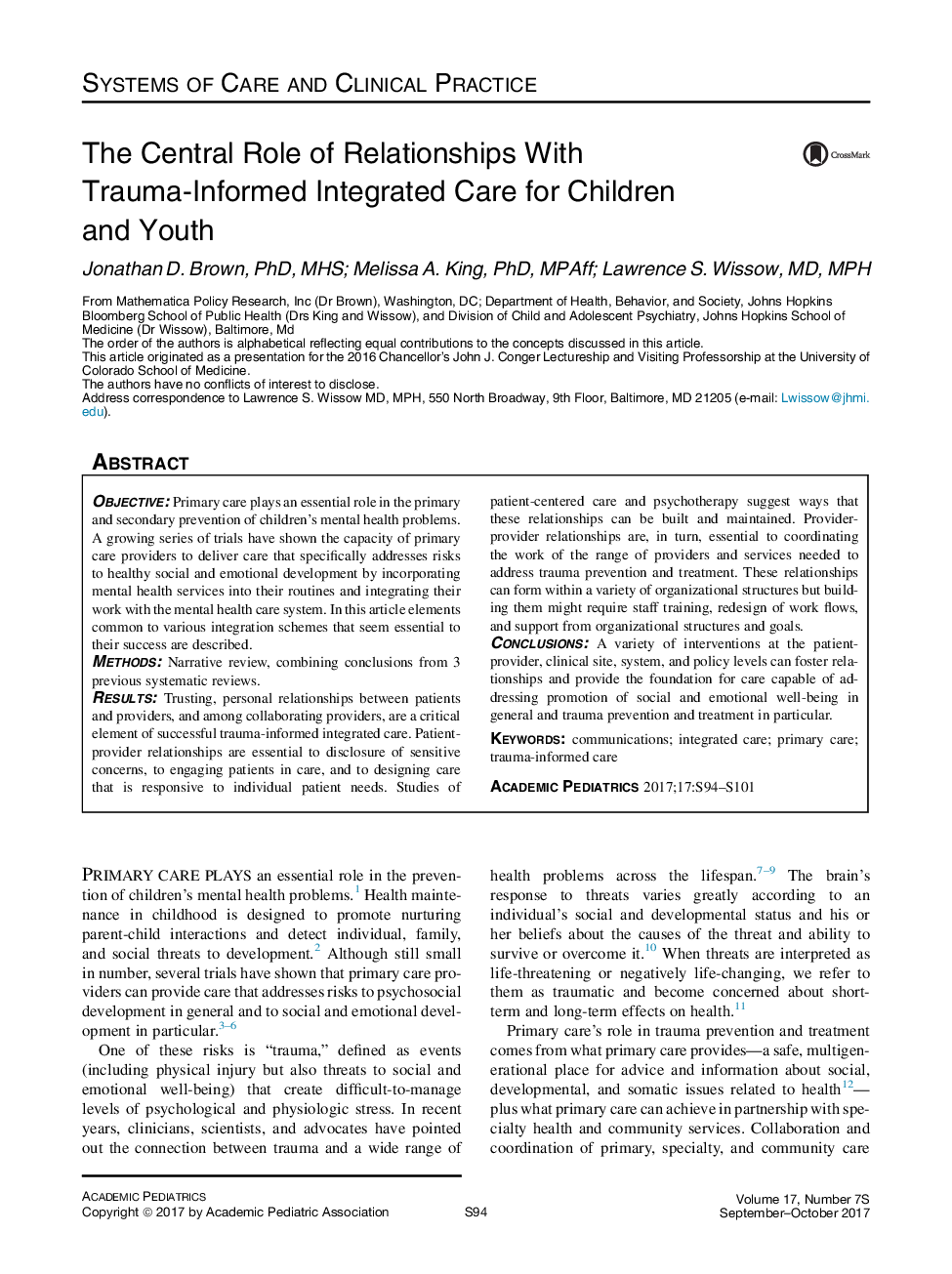| Article ID | Journal | Published Year | Pages | File Type |
|---|---|---|---|---|
| 5716826 | Academic Pediatrics | 2017 | 8 Pages |
ObjectivePrimary care plays an essential role in the primary and secondary prevention of children's mental health problems. A growing series of trials have shown the capacity of primary care providers to deliver care that specifically addresses risks to healthy social and emotional development by incorporating mental health services into their routines and integrating their work with the mental health care system. In this article elements common to various integration schemes that seem essential to their success are described.MethodsNarrative review, combining conclusions from 3 previous systematic reviews.ResultsTrusting, personal relationships between patients and providers, and among collaborating providers, are a critical element of successful trauma-informed integrated care. Patient-provider relationships are essential to disclosure of sensitive concerns, to engaging patients in care, and to designing care that is responsive to individual patient needs. Studies of patient-centered care and psychotherapy suggest ways that these relationships can be built and maintained. Provider-provider relationships are, in turn, essential to coordinating the work of the range of providers and services needed to address trauma prevention and treatment. These relationships can form within a variety of organizational structures but building them might require staff training, redesign of work flows, and support from organizational structures and goals.ConclusionsA variety of interventions at the patient-provider, clinical site, system, and policy levels can foster relationships and provide the foundation for care capable of addressing promotion of social and emotional well-being in general and trauma prevention and treatment in particular.
